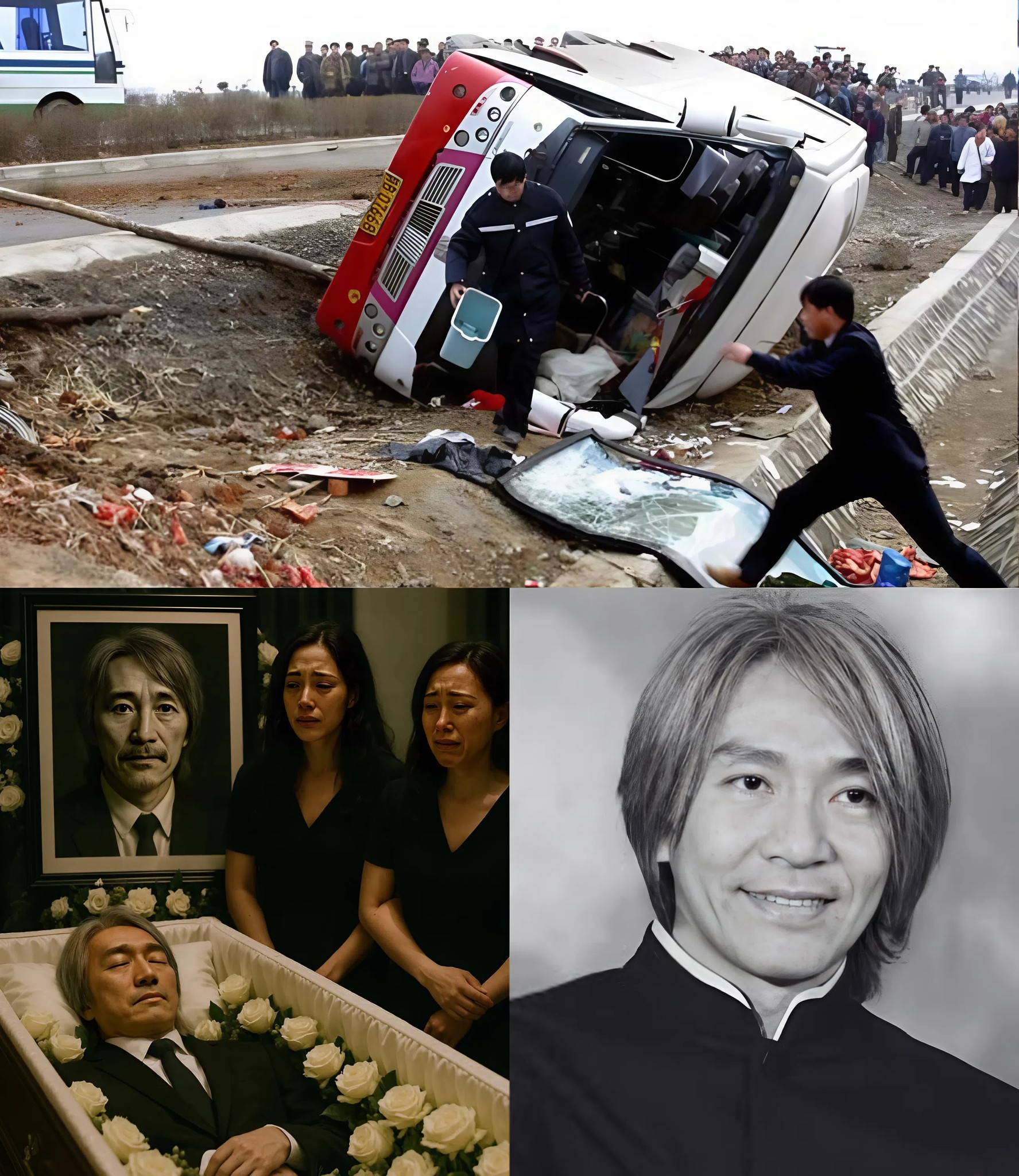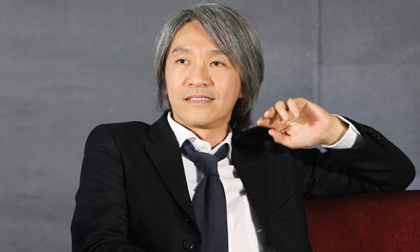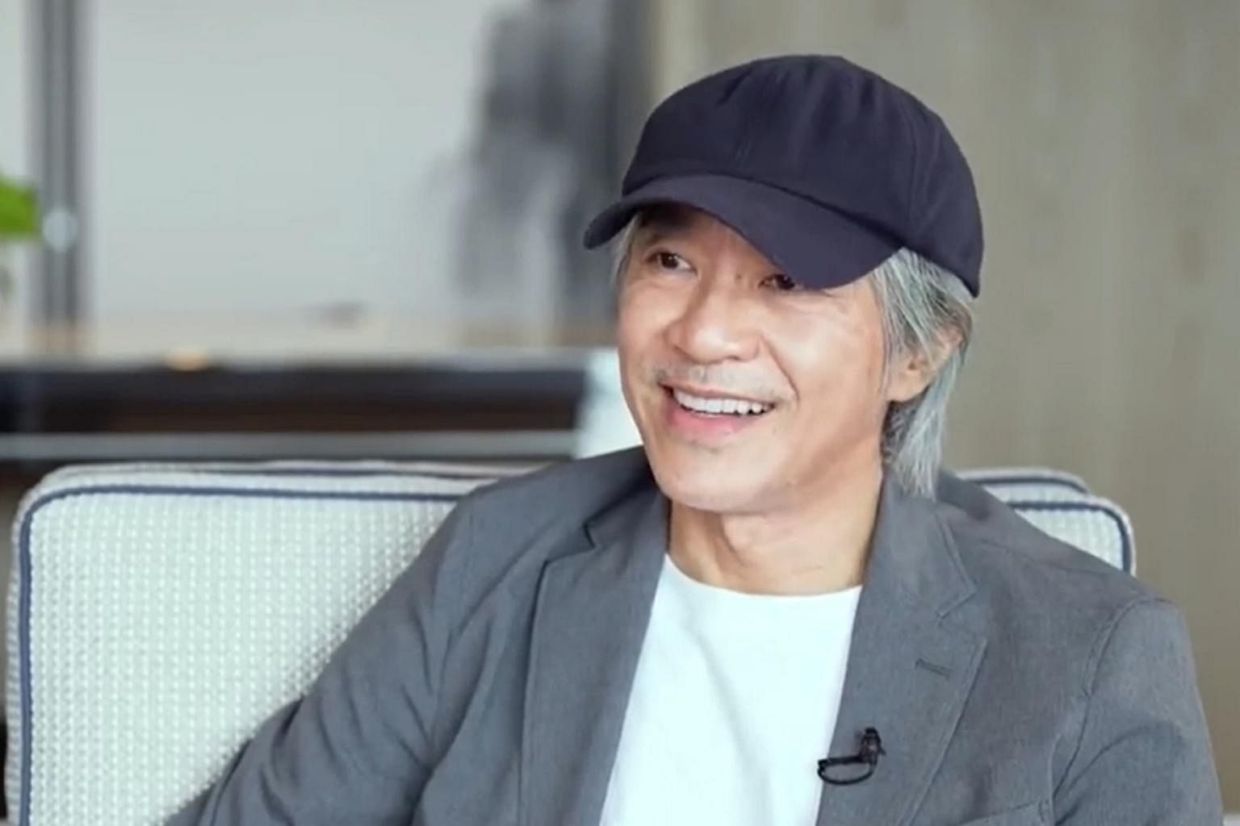It was a late afternoon in Hong Kong when tragedy struck with terrifying suddenness. Within just a few seconds of mechanical failure, an ordinary vehicle became a weapon of destruction, leaving behind wreckage, grief, and an entire nation in shock. Authorities confirmed that a catastrophic brake failure led to a fatal accident that claimed 10 lives. Among the victims was none other than Stephen Chow Sing-chi, affectionately known worldwide as the “Asian Comedy King.”
The news is not just another traffic tragedy—it is the end of an era in Asian cinema. Chow, who shaped the humor, identity, and aspirations of generations, died at 63, leaving millions across Asia and beyond grappling with disbelief and sorrow.
The Tragedy Unfolds
Initial reports from the Hong Kong Police Force state that the accident occurred in Kowloon, on a notoriously steep downhill stretch where vehicles must rely heavily on functional brakes. Witnesses recalled that the driver shouted in panic as he realized the brakes were not responding. The vehicle swerved uncontrollably, colliding with multiple cars and striking pedestrians before overturning.

By the time ambulances arrived, chaos had engulfed the scene. Survivors described a deafening crash, shattered glass everywhere, and screams that will haunt them forever. Despite the swift response of emergency services, 10 people—including Stephen Chow—were pronounced dead at the scene. Several others remain in critical condition.
Authorities have launched a full investigation into the vehicle’s safety record, with growing questions over whether the accident could have been prevented. Hong Kong’s Transport Department has pledged transparency, but the public anger is mounting, as this is not the first time brake failures have caused mass casualties on city roads.
A Nation in Mourning
The death of Stephen Chow sent shockwaves through Hong Kong and the entire Chinese-speaking world. Within minutes, his name dominated social media across Asia. On Weibo, hashtags such as #StephenChowForever and #ThankYouForTheLaughter trended globally. Thousands of posts poured in, many from fans who grew up watching his films, now grieving as though they had lost a family member.
One fan wrote: “He made us laugh when we were poor, gave us hope when we were lost. Tonight, Hong Kong cries together.”
Outside major cinemas in Mong Kok and Tsim Sha Tsui, fans have already begun gathering, lighting candles and leaving flowers beside posters of his iconic films. His death feels deeply personal because Stephen Chow wasn’t just a comedian—he was a storyteller who reflected the lives of everyday people.
The Life and Career of a Comedy King
Stephen Chow was born in 1962 in Hong Kong to a working-class family. His early years were marked by struggle, but he found refuge in cinema, idolizing martial arts legends like Bruce Lee. Unlike his hero, Chow’s destiny was not to dominate through strength but through humor, creativity, and heart.
The Rise to Stardom
Chow began his career as a television actor in the 1980s but quickly transitioned into film, where his unique comedic style—later dubbed mo lei tau (nonsensical humor)—captured audiences. His characters were often underdogs: foolish yet brilliant, weak yet cunning, hopeless yet strangely heroic.
By the 1990s, Chow was a household name across Hong Kong, mainland China, and Taiwan. His box office successes consistently broke records, proving that comedy could be as commercially powerful as action blockbusters.
Global Recognition
His breakthrough on the international stage came with Shaolin Soccer (2001). The film’s audacious blend of slapstick comedy, martial arts choreography, and CGI dazzled audiences, becoming one of the highest-grossing Hong Kong films ever.
But it was Kung Fu Hustle (2004) that sealed his place in global cinema. Mixing comedy with stunning action sequences and homages to classic martial arts films, it earned praise from Hollywood directors and critics worldwide. The film won the Hong Kong Film Award for Best Director in 2016, proving Chow was not just a comedian but a visionary storyteller.
His Cultural Impact
Chow’s influence cannot be measured solely in box office numbers. His films were reflections of the collective psyche of Hong Kong—a city constantly caught between East and West, tradition and modernity, struggle and survival.

-
Championing the Underdog:
Chow’s characters embodied resilience. Whether a failed soccer player, a wannabe kung fu master, or an unlucky gambler, his protagonists mirrored the everyday struggles of Hong Kong’s working class. -
Blending Genres:
He was one of the first to successfully merge martial arts with absurdist humor, giving rise to a style now imitated across Asia. -
A Global Legacy:
Hollywood filmmakers, from Quentin Tarantino to the Wachowskis, openly praised his originality. Kung Fu Hustle was distributed worldwide, introducing millions outside Asia to Chow’s genius. -
Generational Influence:
Many modern comedians and filmmakers in Asia credit Chow as their inspiration, calling him a bridge between traditional Cantonese humor and global comedy trends.
Industry Tributes
The entertainment world reacted swiftly to the heartbreaking news. Director Tsui Hark mourned, saying: “Stephen understood the spirit of the common man better than anyone. He was not just a comedian; he was a philosopher disguised as a fool.”
Actress Zhang Ziyi posted: “We laughed with him, we cried with him. Today, the world feels smaller without his smile.”
Even international stars chimed in. American actor Jim Carrey tweeted: “Stephen Chow was a giant of comedy. His humor crossed oceans and cultures. We’ve lost one of the greats.”
Family and Fans—An Outpouring of Grief
In a short but deeply emotional statement, Chow’s family said:
“It is with unbearable sorrow that we inform fans and friends that our beloved Stephen has passed away. His light brought joy to millions, and though he is gone, his spirit will live on in the laughter he gave the world.”
Rumors suggest that the family is planning a public memorial service, allowing fans to bid farewell to their hero. If so, Hong Kong is likely to witness one of the largest public gatherings in its recent history.
The Road Safety Debate
While grief dominates headlines, the accident has reignited anger over road safety standards in Hong Kong. Brake failures, though statistically rare, have caused multiple tragedies in recent years. Critics argue that aging vehicles, lax inspections, and inadequate safety measures continue to endanger lives.
Today’s disaster has fueled public outrage, with citizens demanding stricter regulations and better accountability for vehicle maintenance. Lawmakers have promised swift reforms, but for many, the promises come too late.
The Legacy That Lives On
Stephen Chow’s death is not just the loss of a star but the silencing of a voice that represented resilience, humor, and hope. Yet, in many ways, his legacy is immortal.
-
His films continue to be rewatched by millions annually, transcending cultural and generational barriers.
-
His style of comedy remains a blueprint for Asian filmmakers.
-
His philosophy—that laughter is a weapon against hardship—still resonates profoundly in today’s troubled times.
As one fan wrote on Weibo: “Heroes don’t die. They live in the memories they gave us. Stephen Chow will always make us laugh—even from heaven.”
A Curtain Falls
Tonight, Hong Kong is quieter, the streets heavy with grief. A legend is gone, taken not by illness or age but by a tragic twist of fate on a city road. Yet the laughter he gave the world ensures that his name will never be forgotten.
In mourning, there is also gratitude—for the countless hours of joy, the lessons hidden within absurd jokes, and the reminder that humor is often the purest expression of humanity.
Stephen Chow’s curtain has fallen, but the stage of memory will forever echo with his laughter.
